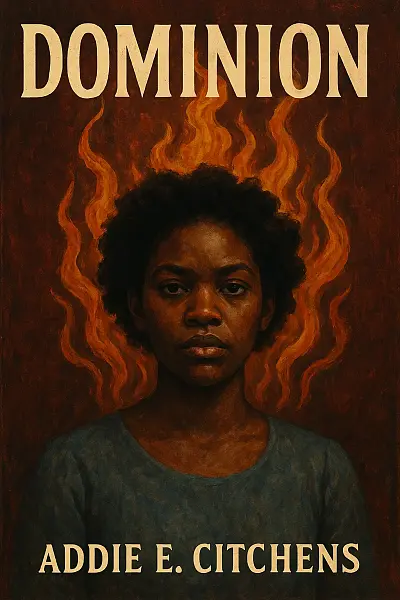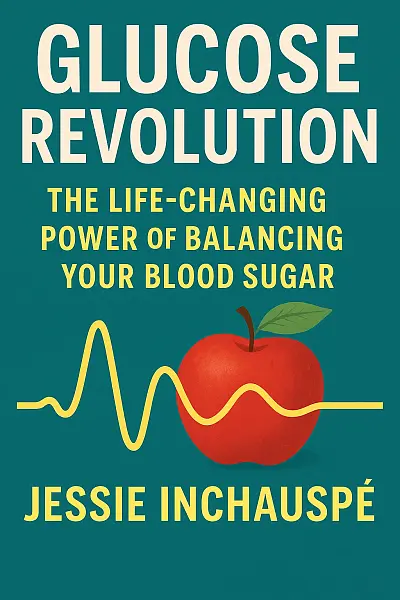
Dominion
Reverend Sabre Winfrey runs Dominion, Mississippi, with ironclad faith and ambition. His youngest son, Wonderboy, shines as the family’s golden child—admired for his talent, charm, and promise. But when a startling encounter with a stranger shakes Wonderboy’s world, the cracks in the town’s polished surface start to show.
Suddenly, Wonderboy is forced to question his role and identity, even as his family’s reputation—and his community’s fragile order—hang in the balance. As secrets threaten to upend everything, the women who love these men must decide whether to keep enabling old patterns or break free.
Told in a voice that’s deeply honest and simmering with tension, Dominion explores the dark corners of small-town life with raw emotion, asking: will anyone dare to challenge the sins that bind them?
"“True strength lies not in what we conquer, but in what we have the courage to remember.”"
Let's Break This Down
The Author's Voice
Atmosphere
Moody and immersive, with a lingering sense of unease
Citchens drenches every page in a humid, Southern Gothic ambiance—think shadowy porches, dense woods, and secrets humming beneath the surface. The atmosphere crackles with tension, as if the setting itself is part specter, part witness to the characters’ struggles. There’s a timeless, claustrophobic air to the world she creates, making the story feel both intimate and haunted.
Prose Style
Lyrical, evocative, and layered with sensory detail
The writing leans poetic without being overwrought—sentences wind and unspool, often pausing to linger on the scent of rain or the press of memory. Dialogues ring with authenticity, and metaphors slip seamlessly into the narrative, giving even the mundane moments a tremble of significance. Citchens isn’t afraid to challenge the reader with complexity, but never loses the thread of emotional clarity.
Pacing
Deliberate, rhythmic, and punctuated by moments of intensity
This isn’t a book that rushes; instead, it settles the reader in, building slow-burning suspense while allowing space for reflection. The narrative pace mirrors the sultry setting, moving with intention—but when revelations hit, they jolt the story forward in sharp, memorable bursts. For readers who love a novel that simmers and uncoils rather than sprints, this approach is deeply satisfying.
Dialogue & Voice
Authentic, textured, and alive with regional music
Conversations capture the cadence of Mississippi speech, earthy and vivid, layered with unspoken histories and coded meanings. Each character’s voice stands out with individuality, grounding them in place and time. There’s a remarkable ear for how people really talk—sometimes clipped and wary, sometimes expansive and lyrical.
Emotional Resonance
Raw, intimate, and slow to unfold
Dominion is a book that invites you to feel—sorrow, longing, defiance—by degrees. The writing is unafraid to brush up against pain and history, but gives readers room to process alongside the protagonists. By the final pages, the emotional payoffs feel wholly earned and resonate long after closing the book.
Key Moments
- That jaw-dropping midnight church scene—where secrets and spirits collide
- Gritty, poetic prose that crackles with Southern Black folklore
- Generation-spanning trauma revealed through fiercely unforgettable women
- Mama Fae's kitchen—a simmering cauldron of wisdom and warning
- Religious ecstasy meets raw social commentary—never lets you look away
- Final pages: an exorcism of guilt and hope you won’t soon shake
Plot Summary
- Dominion sweeps us into the turbulent life of Annabelle “Belle” Jones, whose small Mississippi town—Tatesville—is upended by supernatural forces after a charismatic stranger, Reverend Elijah, arrives. Belle's discovery of an ancient, forbidden text begins a chain reaction of mysterious, often violent events that expose deep community tensions and personal secrets. As supernatural occurrences intensify, Belle partners with her closest friend, Marlon, to uncover the truth and confront the sinister Reverend, who is revealed as an agent of chaos rather than a savior. The tension builds toward a dramatic climax in the church, where Belle, facing her greatest fears, outmaneuvers both human and supernatural threats. The story settles with Belle forging a new sense of identity and agency, leaving the town changed and its dark legacy exposed.
Character Analysis
- Belle starts off as an introverted, observant teenager craving belonging, but her experiences drive courageous growth. She’s thoughtful, loyal, and driven by an inner sense of justice.
- Reverend Elijah, the novel’s antagonist, is mesmerizing yet menacing, using his charisma to manipulate the town’s fears and prejudices—he’s a fascinating portrait of twisted leadership motivated by power rather than faith.
- Marlon is Belle’s grounding presence. He’s practical and supportive, changing from a cautious bystander into an active ally who learns the cost of standing up for what's right.
- Throughout the novel, these characters experience profound change—Belle, especially, goes from reluctance and self-doubt to resolute action and self-discovery.
Major Themes
- The dangers of blind faith and authority loom large, as Reverend Elijah’s influence demonstrates how easily people can be manipulated by fear and charisma. The town's willingness to follow without questioning speaks to the destructive power of groupthink.
- Identity and Agency surface as Belle fights the expectations set for her, struggling against both supernatural forces and societal norms to define her own destiny.
- Domination and Resistance play out not just through the Reverend's supernatural powers, but in the racial, gender, and generational tensions within the town. Belle's rebellion highlights the necessity of dissent in oppressive environments.
- The legacy of trauma and resilience comes alive through Belle’s ancestors and the collective memory of the community, reminding us how the past lingers in the present.
Literary Techniques & Style
- Addie E. Citchens writes with lyrical intensity, mixing lush, atmospheric descriptions with punchy dialogue to capture the heat and history of Mississippi.
- The novel uses a dual structure—alternating between past and present—to deepen the mystery and gradually unravel connections between generations.
- Symbolism is rich: the ancient text, the church, and recurring images of water and fire all serve as powerful metaphors for discovery, destruction, and cleansing.
- Citchens skillfully employs magical realism, blending everyday struggles with the supernatural to enhance both the suspense and the emotional stakes.
Historical/Cultural Context
- The story is set in rural Mississippi, echoing the region’s historical legacy of racial oppression, religious fervor, and deep-rooted community ties.
- The narrative reflects the enduring impact of the Jim Crow era, as well as modern struggles around identity, gender, and power in the South.
- Cultural folklore, biblical undertones, and local traditions shape both the plot and the interpersonal dynamics, grounding the supernatural in authentic lived experience.
Critical Significance & Impact
- Dominion has been praised for its ambitious blend of Southern Gothic, coming-of-age drama, and magical realism—offering fresh insight into both classic literary themes and current issues.
- It resonates strongly with readers navigating questions of faith, power, and personal agency, positioning Citchens as an important new voice in contemporary Southern literature.
- The novel’s vivid characters, haunting atmosphere, and thoughtful examination of community dynamics give it staying power for discussion and literary study.

Power, legacy, and faith collide in a Southern legacy haunted by secrets.
What Readers Are Saying
Right for You If
If you’re into Southern Gothic vibes with a dash of magical realism, Dominion is definitely up your alley. This book gives you that moody, atmospheric Mississippi setting—so if you like stories where place feels like a character, you’ll love it.
- Love rich, layered family drama? Yeah, this is your thing. It dives into generational legacies and complicated relationships, especially between women. Fans of Jesmyn Ward or Toni Morrison will feel right at home.
- If you’re drawn to supernatural elements that aren’t the usual fantasy tropes, this one puts a unique spin on hoodoo and ancestral magic—think less Harry Potter, more swampy, mystical realism.
- For readers who appreciate language that lingers—seriously, the writing here is super evocative and poetic at times—you’ll want to savor it, not rush through.
But real talk:
- If you’re looking for a fast-paced thriller or straightforward plot, Dominion might not be your jam. The story meanders and sometimes leans heavy on atmosphere over action.
- Folks who aren’t into magic mixing with their literary fiction, or who prefer light, breezy reads, will probably find the dense themes and slow burn a bit much.
- Also, if you need neatly tied-up endings or clear-cut moral lines, you might get frustrated—this book kind of luxuriates in ambiguity.
So, bottom line:
Pick this up if you’re craving something lush, layered, and a little uncanny. But if you want a breezy beach read or need your stories cut-and-dry, maybe keep browsing.
What You're Getting Into
Ever wondered what secrets linger beneath the surface of a seemingly ordinary Southern town?
Dominion by Addie E. Citchens draws you into the lives of the Everfield family as returning daughter Cecilia uncovers unsettling family histories and hidden tensions that threaten to unravel everything. With an atmospheric blend of southern gothic vibes, simmering mysteries, and raw emotional truths, this book promises an immersive journey full of heart, haunting questions, and rich character dynamics.
Characters You'll Meet
-
👩🦱 Jo McKennon: The determined protagonist whose return to her rural hometown unearths buried family secrets. Jo's resilience and curiosity drive much of the story’s tension and emotional stakes.
-
💼 Pastor Griggs: Charismatic spiritual leader wielding significant power in the community. His confident public persona belies inner conflicts and hidden motivations that complicate Jo’s search for truth.
-
🧓 Grandma Ora: Wise matriarch who bridges generations, offering guidance but also guarding painful truths. Her presence grounds Jo amidst the chaos, and her personal history is key to unraveling family mysteries.
-
👦 Franklin: Jo’s troubled younger cousin caught in the crossfire of community expectations and generational trauma. His struggles give a raw insight into the costs of silence and conformity.
-
✊ Aunt Vera: Fiercely protective and unafraid to challenge tradition, Vera stands as Jo’s steadfast ally—her willingness to break with local norms pushes Jo toward uncovering the past.
More Like This
If you found yourself gripped by the haunting atmosphere and generational secrets of The Vanishing Half by Brit Bennett, Dominion will feel like a fresh yet familiar echo, weaving the lingering complexities of family and identity with lyrical Southern storytelling. Just as Jesmyn Ward’s Salvage the Bones plunges readers into the heart of rural Mississippi, Dominion captures that same sense of place—raw, tangible, and brimming with both history and heartache—while forging its own urgent emotional core.
On screen, the layered exploration of family ties and buried truths may remind you of HBO’s True Detective (Season 1), especially in the way small-town mysteries ripple outward, exposing fault lines of pain and redemption. Citchens brings that same slow-burning tension, building an atmosphere thick with suspense and revelation, making each new discovery feel both inevitable and electric.
Critic's Corner
So much of society’s bruising power lies in the quiet complicity we rarely question—especially when it parades as righteousness. Dominion by Addie E. Citchens pries open the loaded question: what are we willing to overlook when protecting our best-loved icons, and who pays the price? In a landscape as lush and fraught as the Mississippi Delta, this novel stares down the tangled roots of family, faith, and the silent bargains women make to keep the peace.
Citchens’s prose buzzes with observation—rural details, heat-laden conversations, and the simmer of secrets that threaten to boil over. Through the perspectives of women orbiting Reverend Winfrey and his golden-boy son, the narrative achieves both intimacy and reach. Dialogue snaps with authenticity, capturing the deep musicality of Southern speech while sidestepping cliché. The author excels at pacing, using short, charged chapters and scene pivots that mirror rising communal tensions. Yet, some may find the emotional withholding in key turning points a double-edged sword: while it sharpens atmosphere and suspense, it can distance readers from the characters’ private griefs and rages. Still, her control of tone—a blend of wry humor, biblical cadence, and righteous anger—is striking, giving the novel a distinctive voice that feels urgent and true.
Dominion mines the cost of patriarchy with incisive compassion. The narrative exposes the emotional labor exacted from women tasked with propping up flawed men—for the sake of church, home, and reputation. It probes spiritual faith not as an untouched sanctuary but as a field where power games and survival tactics blur. Citchens’s treatment of “everyday violence” is especially timely in a world reckoning with silence and complicity. At its best, the book asks: What does forgiveness mean when it’s demanded, not earned? The Mississippi setting is more than scenery—it’s a living entity, whispering of legacy, shame, and the uneasy comfort of tradition. Citchens doesn’t offer tidy justice or easy catharsis, choosing instead to illuminate the subtle, persistent ways complicity is taught—and resisted. This makes the book powerfully relevant, giving the reader tools for self-examination long after the last page.
In the tradition of Tayari Jones and Jesmyn Ward, Dominion carves out a space in the Southern literary canon to reckon with wounds both holy and common. Citchens toes the line between family epic and small-town noir, recalling the tension-laden atmospheres of Attica Locke but filtered through a distinctly matriarchal consciousness. While it stands as a debut, the novel’s voice and structure signal rare ambition and confidence.
There are moments where character interiority is sacrificed for thematic heft; secondary roles sometimes flatten into symbols. Yet, the originality and unflinching honesty of Citchens’s vision trump these missteps. Dominion is a fierce, thoughtful entry into contemporary Southern fiction—sharp-edged, wise, and wholly necessary now.
Community Thoughts
i finished Dominion at 2am and couldn't sleep. that one scene with Aunt Geneva’s humming kept echoing in my head, like she was in the hallway outside my door. unsettling but addictive, i couldn't put it down.
i legit couldn’t sleep after meeting Aunt Clara in Dominion. her presence crawled off the page and set up camp in my head. the way she watched everything...chills. i still double-check dark corners now.
Was not prepared for the way Citchens made the rain feel like a living, breathing threat in Dominion. That one chapter with the storm? Still thinking about it. Can't look at thunder the same.
Okay, so I THOUGHT I was just reading another Southern gothic, but then that one scene—yeah, the storm in the church—completely took over my brain. Spent all night thinking about it. I literally lost sleep. Citchens, what have you done to me?
okay but THAT SCENE with Mama Delphine at the river, I literally had to put the book down and just stare at the wall. her voice is still echoing in my head and I don’t know if I’ll ever sleep right again.
Leave Your Review
Local Take
Why It Matters
Wow, “Dominion” by Addie E. Citchens strikes a unique chord with readers here!
Let’s break it down:
-
Parallel History: The novel’s exploration of generational trauma and deep-seated prejudice really hits home in a country with its own legacy of racial tension. Echoes of the Civil Rights Movement and ongoing fights for equality map onto Citchens’ depictions of resilience and resistance.
-
Cultural Values: Family loyalty and community survival are huge touchstones locally. The book’s focus on these themes creates instant relatability, but its raw depiction of inherited pain and systemic injustice can be both jarringly honest and unsettlingly familiar—sometimes challenging our preference for narratives about reconciliation and unity.
-
Plot Impact: Moments of generational conflict and cycles of silencing resonate differently here, sparking conversations about which stories get told and which are buried.
-
Literary Traditions: “Dominion” aligns with Southern Gothic and magical realism, yet it boldly challenges the tidy resolutions often favored in local storytelling—leaving readers to grapple with haunting truths long after the last page.
Food for Thought
Notable Achievement:
Dominion by Addie E. Citchens has been celebrated for its vivid portrayal of Black Southern life, earning praise for shining a spotlight on underrepresented stories and often being highlighted in major Black literature reading lists and community recommendations.
- The novel has resonated with readers for its authenticity and has been featured in several literary festivals, which speaks to its cultural impact and growing influence in contemporary Southern fiction.
Like what you see? Share it with other readers







